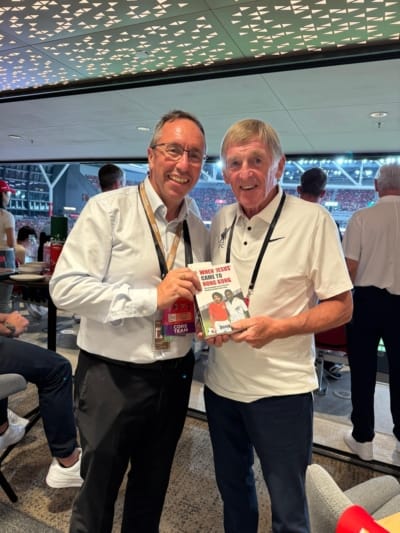 The photo is from Kowloon’s Kai Tak Stadium tonight, as Liverpool FC play AC Milan: stadium CEO John Sharkey presents Liverpool legend Sir Kenny Dalglish with a copy of When ‘Jesus’ Came to Hong Kong, Derek Currie’s book about being the first European football star to play in Asia.
The photo is from Kowloon’s Kai Tak Stadium tonight, as Liverpool FC play AC Milan: stadium CEO John Sharkey presents Liverpool legend Sir Kenny Dalglish with a copy of When ‘Jesus’ Came to Hong Kong, Derek Currie’s book about being the first European football star to play in Asia.
Currie came to the city in 1970 to play for Hong Kong side Rangers, but before he left Scotland he had played for Cumbernauld United — “alongside a youngster called Kenny Dalglish”, he says.
Currie picks up the story …
Let me take you back to the 1967/68 season in Scotland.
They say you can’t put an old head on young shoulders, but Kenny Dalglish turned that adage on its head. As an 18-year-old I played alongside him when he was farmed out from Celtic to Cumbernauld United Juniors.
For those not familiar with Scotland’s grading of football Cumbernauld United were a Scottish junior side, the Scottish Junior Football Association is an affiliate of the National Association and is the governing body for the ‘Junior’ grade of football in Scotland. The term ‘Junior’ refers to the level of football played, not the age of the players. It means that experienced professionals, getting close to their sell-by-date, can drop down to this level, still play a good standard of football, and continue to earn some money from the game. At the opposite end of the scale, it’s a grade where young players can develop and, if they’re good enough, be snapped up by big professional clubs. Finally, it’s a grade where young professionals from the top clubs can be sent to play for a year to allow them more regular playing time; which is what Celtic did with Kenny.
He was a mere 16 years of age, but what I recall, more than anything, was how mature he was on the field – as we were both forwards I got to enjoy a close-up view. A few of our team were over thirty years of age, some with years of professional experience. Did that faze Kenny? No, quite the opposite, he used to shout out instructions as if he was the captain of the side, demanding where the ball should be played and moaning when poor passes went astray. Confidence he had in spades! Little wonder he went on to win 102 caps for Scotland.
However, off the park he was more prone to act his age. We shared some good laughs together as well as some tough times on the field. There’s a great picture of us taken to promote Miss Cumbernauld after she won the title. Holding up the beauty queen were Abe Monaghan, Ian McEwan, our club captain, Kenny and I. That picture is still floating about on the internet – one of the few still around of me minus the beard and with short hair – but some might not even recognize the young Dalglish standing next to me.
I recall a Scottish Junior Cup quarter-final tie we played against Johnstone Burgh, away from home one Saturday afternoon in 1967. They were a good side, with a great cup reputation, but Kenny’s skill and my speed that day were causing the Burgh defence all sorts of problems and it looked only a matter of time until we scored. Step up David Chisholm, the Burgh centre-half, to change all that.
I was on a run through the middle when he crudely pulled me down. For good measure he stamped on my nose for afters, with the accompanying message: “That will slow you down, you little bastard!” With blood streaming down my face, I was taken off for treatment and played no further part. The game ended in a scoreless draw.
That night our team captain Jackie McKenna was having a party at his home and we were all invited; we had been hoping it would be a victory celebration to get into the semi-final of the Scottish Junior Cup. There was no real medical treatment within the club, so I decided to go to the Glasgow Ear, Nose and Throat hospital after the game to see if my nose was broken or needed further medical treatment.
Up piped Kenny: “I’ll come along with you to the hospital and we can go to the party together afterwards.” I should mention at this stage that Kenny’s father, along with mine, used to come and watch us playing together. Kenny’s father had also asked my Dad if I could keep an eye on him; me being 18, two years older than his son.
I told Kenny he could come to the hospital with me, but I had a date to pick up afterwards, before we went to the party. “Any problem?” he asked.
“No, better you come with me, I know where the party is.”
Kenny waited patiently at the hospital. My prognosis: nothing broken, but the bone in my nose was slightly misshapen, but that could be rectified later if need be. With two cotton wool pellets stuck up my nose and some bruising, I looked more like Lon Chaney than Robert Redford! Kenny and I walked to the rendezvous point where I was to meet my date. Kenny spotted a girl standing alone and, by way of a compliment, said, “She looks nice.”
“She’s with me,” I said sternly. Then we both laughed, all good fun.
On seeing the look of horror on my date’s face I quickly explained to her what had happened; then the three of us took a Glasgow Corporation bus to the party. On arrival at the party Kenny looked at me sheepishly and asked, “Can I have a shandy?”
I said, “No, you can have a Coca-Cola, I told your dad I’d watch you.”
“Okay,” he grumbled.
When the party ended I put my date onto her bus home and Kenny and I caught our bus; no flash cars in those days. That cup tie quarter-final against Johnstone Burgh eventually went to a third replay. In the coldest conditions I have experienced in my entire life, we lost 1-0 at the neutral ground of Rob Roy in Kirkintilloch. I won’t go into too many details of the game except to say the field that day could have been a scene from the movie Ice Station Zebra.
There was a gale force wind blowing down from the Campsie Fells and cold sleet flew almost horizontally through the air. I think the only reason it went ahead was to avoid more fixture congestions. To make matters worse for us, Kenny was injured and couldn’t take part, he was sitting in the stand, so I was left as our main striker.
Before the game – Scott of the Antarctic comes to mind, I kid you not – it was freezing so hard our team manager insisted we all take a nip of brandy to fend off the cold. Not the norm for a footballer before a game, but believe me this was needed to brave the cold. That’s how bloody freezing it was!
In later years I had tried inviting Kenny to come to Hong Kong to make the draw for the Carlsberg Cup, but he told me he was not keen on long haul flights. I finally met him again by accident. I was in Britain covering the 1996 Euro Championships for The Standard as was Robin Parke for the South China Morning Post. While walking through the press room at Anfield prior to one match, Robin said, “There’s your pal Kenny sitting over there.”
As I walked towards Kenny he was in discussion with a chap who looked vaguely familiar. I think it was one of the tabloid journalists from England. I overheard them saying something about Terry Venables, Gascoigne and Hong Kong. I immediately said to Kenny, “Yes, when are you coming to Hong Kong to see me?”
He looked up, smiled, and said to the journalist, “He used to babysit me!”
Priceless, a brilliant answer!
I like to call Kenny a dear old friend. I’m really proud of what he has achieved through football and the extra yards he went for Liverpool fans and their families after the tragedy of Hillsborough.
When we left the Glasgow Ear, Nose and Throat hospital all those years ago, two young boys, one 18, the other 16, who would have believed that the younger one would go on to become ‘King Kenny’ in Liverpool and be knighted by Prince Charles, while the other would be called ‘Jesus’ in Hong Kong… a small miracle.
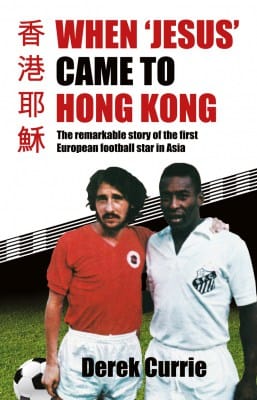 Read more of Derek Currie’s story in his book, When ‘Jesus’ Came to Hong Kong: The remarkable story of the first European football star in Asia.
Read more of Derek Currie’s story in his book, When ‘Jesus’ Came to Hong Kong: The remarkable story of the first European football star in Asia.
“An illustrious playing career. An excellent read.” – Craig Brown CBE, former manager, Scotland national football team
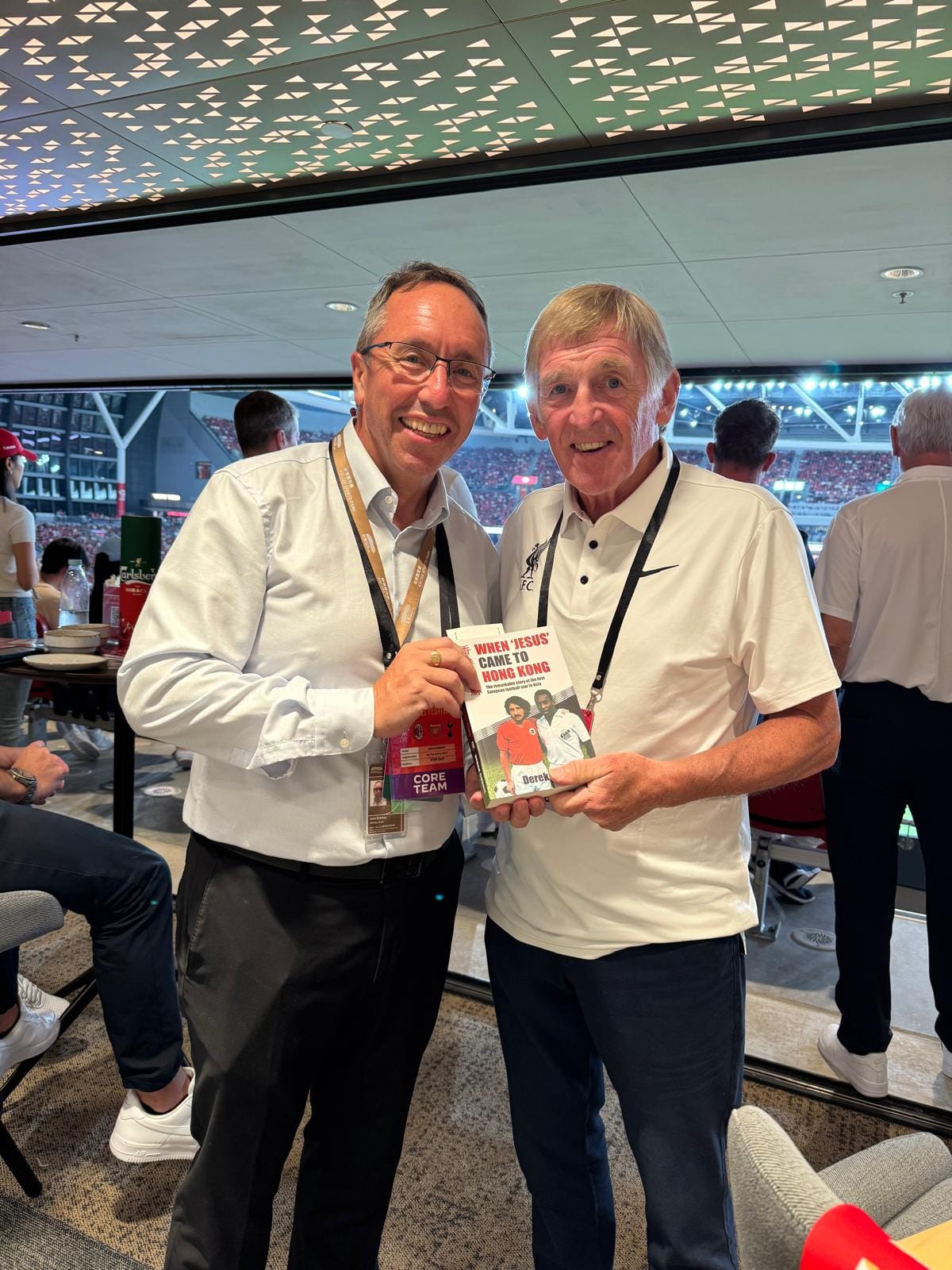
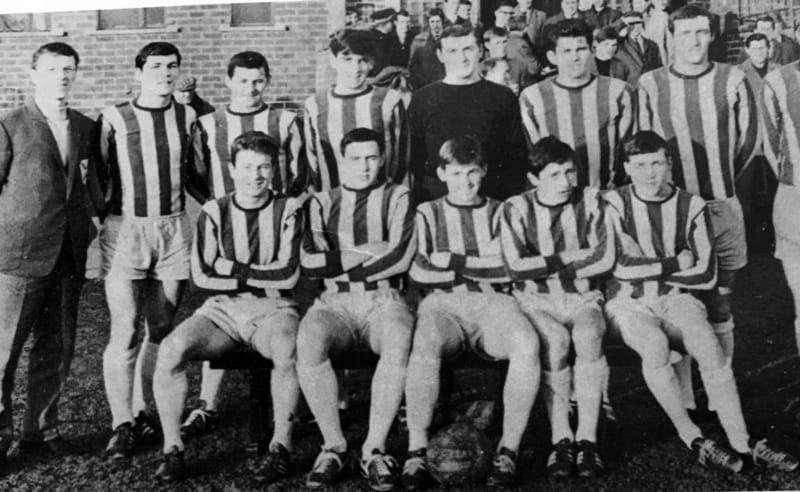
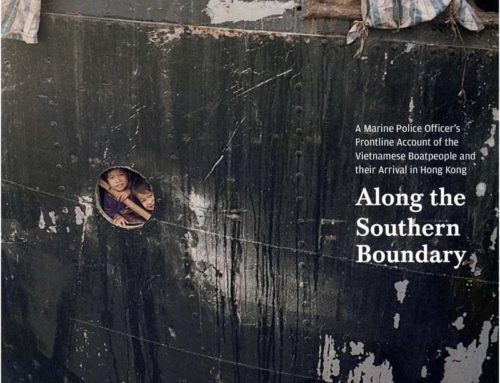
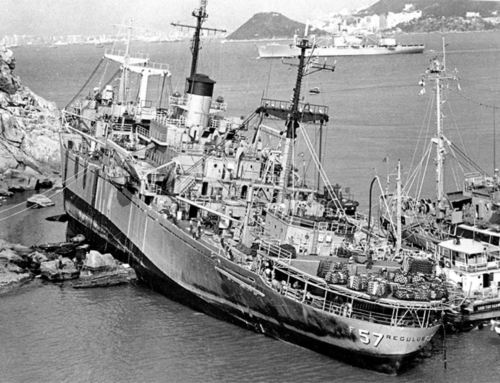
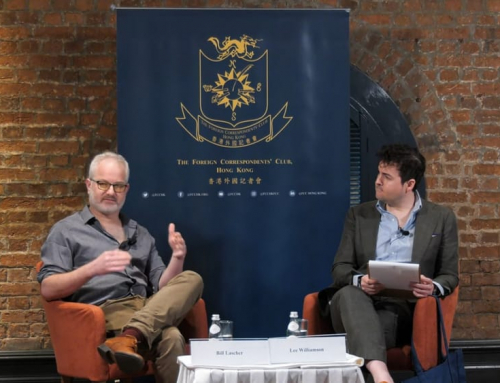
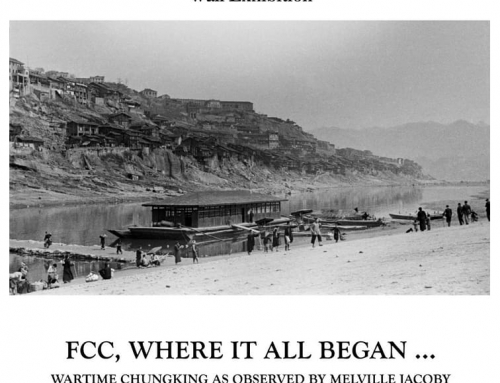
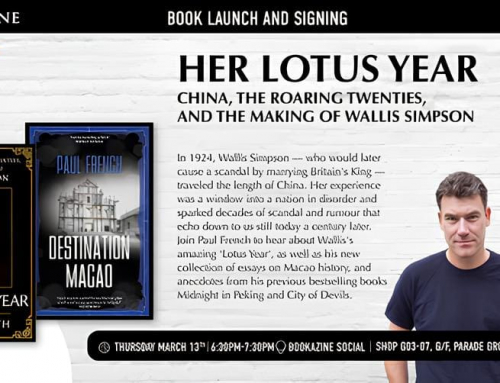
Leave A Comment